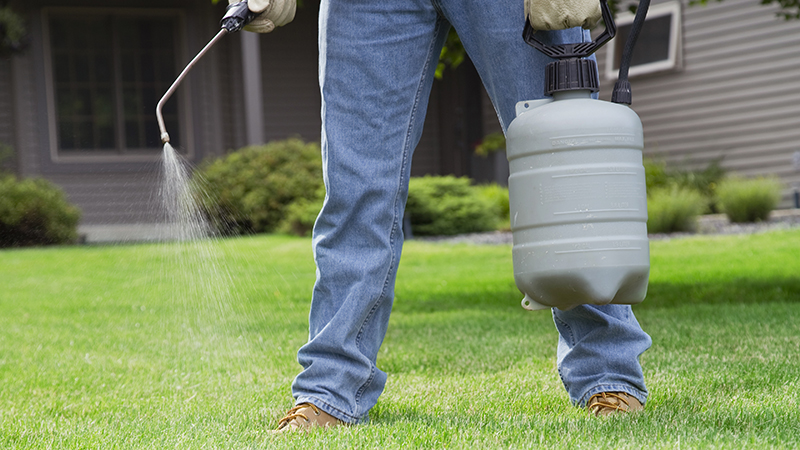OUT IN THE YARD — Help to weed out your summer lawn problems
Published 12:02 am Saturday, July 11, 2020
|
Getting your Trinity Audio player ready...
|
Along with hot temperatures, the summer season in Texas may bring special attention to lawn problems — drought, weed, insects and disease.
These lawn issues can wreak havoc for homeowners who strive for the perfect lawn. Some of these issues are easy to identify and correct, while other issues may require more attention to identify and correct.
No mater the issue at hand, an accurate diagnosis and the correct treatment is needed before these issues become severe.
Trending
Dry spots, thin turf and weeds can result from improper watering, improper fertilization and incorrect practices. Simply following recommended cultural practices and the directions on the label of products used on the lawn will put homeowners on the correct track for a better lawn.
Drought stress most often occurs in the mid-summer months and shows up as wilted and discolored turf. Provide supplemental irrigation during hot and dry months to lawns at a rate of 1½ to 2 inches per week.
An irrigation audit is a good idea to figure out exactly how much water each sprinkler or zone is distributing across the lawn. Adjust as needed to compensate for rainfall as well.
Most homeowners tend to water their lawns too often and not for long periods of time. The goal of good irrigation or rainfall is for the grass to get a good deep soaking irrigation.
The phrase “water deeply and infrequently and not shallow and frequently” should be the goal when irrigating lawns.
Be sure to raise the mowing height during the summer months. A good average for St. Augustine lawns is around 4 to 4½.
Trending
Raising the cutting height allows for more shade to the grass roots and helps to reduce heat stress on grass. This also helps to choke out any weeds that are in the lawn.
Lack of nitrogen or iron may also create issues for lawns. Lawns with a nitrogen deficiency may have a pale color and be heavily infested with weeds. A light application of nitrogen may help to improve the lawns appearance.
Be sure to use a well-balanced fertilizer and not to exceed nitrogen applications of 2 to 3 pounds per 1,000 square feet of lawn during the growing season. Avoid high nitrogen fertilizers during the summer months when lawns are subject to stress from drought.
Grass leaves that have yellow stripping running parallel to the leaf margin may be deficient in iron. Foliar applications of iron sulfate applied at a rate of 6 ounces per 1,000 square feet will help to minimize this issue.
If St. Augustine lawns do not respond to these types of treatments, be sure to look for other issues that may be affecting the lawn. Often, fungal issues may show symptoms that resemble other issues.
Damage from fungal disease may become more noticeable at this point due to stress from the summer months. Most fungal damage occurs in the early spring and fall months during extreme wet periods and cooler temperatures.
The best course for treatment is to begin the use of a quality fungicide at the first signs of issues and repeat as necessary to prevent future infections of fungal issues in the lawn.
Chinch bugs and grubs seem to be the most prevalent insects during the summer months. Their damage may imitate drought stress, causing browning of the lawn. If watering sufficiently does not correct the issue, look at insects as the culprit. There are several good quality insecticides that can be applied in a granular form to the lawn for insect control. Be sure to follow directions on label and apply as directed.
Weeds are most prevalent in a lawn that is stressed and in a weakened condition. A healthy lawn that is thick and dense will slow down weed growth.
One weed, Virginia Button Weed (Dioda virginiana), is a persistent weed that will completely choke out desirable lawn grass if left unchecked. This weed can be controlled by multiple methods including hand pulling or spot applications of approved herbicides.
Herbicides with active ingredients that include MSM (Metsulfuron-Methyl) as active ingredients are effective at controlling these types of weeds. Be sure to follow all directions on the label.
With just a little effort and knowledge, you can maintain your lawn and avoid some of the summertime issues that may arise as the summer months begin to heat up.
Reach Jefferson County AgriLife County Extension Agent/David Oates at David.oates@ag.tamu.edu or 409-835-8461.






